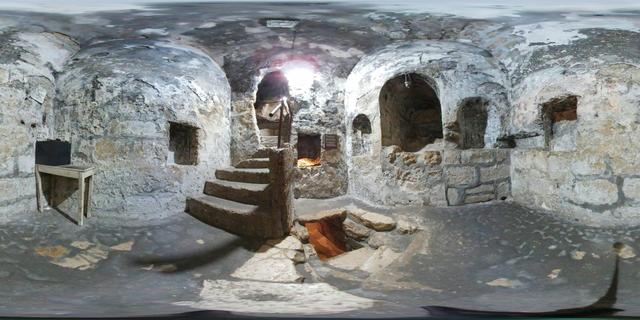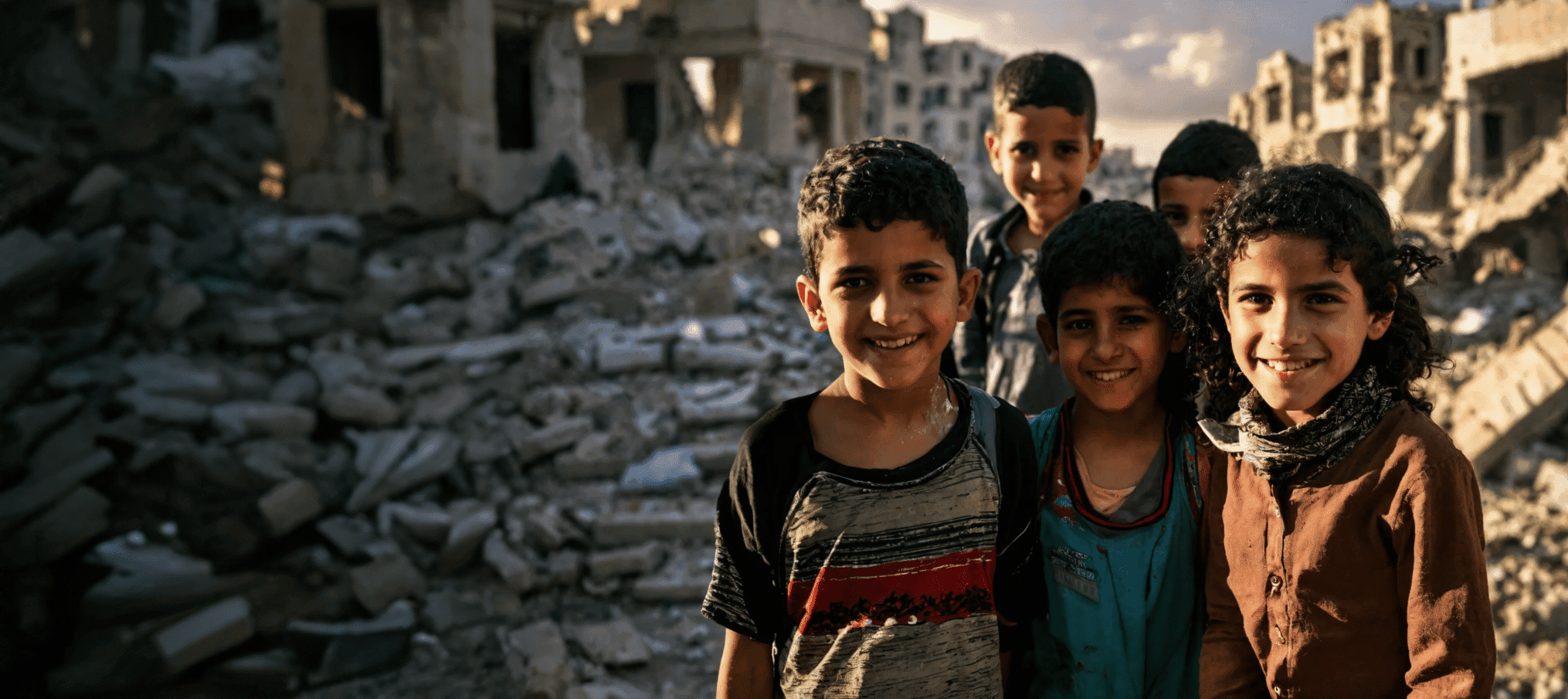What is life like in the Orontes Villages in Idlib province, after 13 years of war? What are the differences with the rest of Syria? We asked Father Louai and Father Khoukaz.
According to a tradition handed down for centuries, two men between 40 and 50 years of age set out from Jerusalem to Antioch in Syria following the course of the Orontes River. Due to the flooding of the river, however, it was impossible for them to walk the path downstream, but they had to proceed on the surrounding hills . This was the reason why the men and women of the hilltop villages became aware of the new cult, Christianity, which was in its infancy at that time in history. We are, in fact, in the middle of the first century A.D. and those two men are Paul and Barnabas.
The few Christians in those villages today remember it as if it were yesterday. And it is this memory that still animates and maintains them rooted to their land and steadfast in their mission despite the fact that the area we are talking about today is part of the Idlib Governorate, one of the last areas of Syria Where the fighting is still going on after 13 Years of War and where, on and off, groups of jihadists and rebels have ruled against the government in Damascus, with violence and terror.
The only two Christian religious
Father Louai and Father Khoukaz, parish priests of the villages of Knaye (Qunaya) and Yacoubiyeh, Franciscans of the Custody of the Holy Land and the last two Christian religious left in the most disputed province of Syria, tell us about it. Their mission is first and foremost to care for and accompany the 250 Christians who have decided to stay here because, they say, their witness is "fundamental despite everything, despite the fact that most of their relatives and friends have fled because of the war."
For them, the story of Paul and Barnabas is not just a legend or a story that they tell each other to gain courage, but it is a reality and a life mission that today bears fruit in what the two Franciscans call real "daily miracles".
It is not a story for the young father Khoukaz, who arrived a few weeks ago and was immediately greeted by heavy bombings. Khoukaz is originally from here and responded to the call to become parish priest of Knaye after the previous parish priest, Father Hanna Jallouf was consecrated bishop of the Latins of Aleppo. And it is not for Father Louai who, after a period of service in Bethlehem, has been parish priest of Yacoubiyeh since 2015. "For me, coming here," says Father Louai, "is a thanksgiving for this land that has been the geographical context of my vocation."
A thanksgiving that takes the form of concrete gestures of accompaniment and assistance free not only to the Christian community, but to anyone who asks for help. This is what over the years has also convinced some of those who since 2015 had occupied homes, plundered land with olive trees and forced thousands of people to flee to safer cities. "Recently," Louai tells us, "there are glimmers of improvement in relations, last year's earthquake literally broke people's shoulders and the fact that we provided assistance to everyone was a testimony that united us all."
Life here is "better" than in the rest of Syria
This glimmer of hope for reconciliation (and perhaps one day for the return of land) is one of the reasons why some are thinking of returning. "The situation here," Father Khoukaz tells us, "in a certain sense is slightly better than in the rest of Syria. It's unpredictable – of course – because fighting could break out at any time, but on an economic level you can live better. That's why about 30 families decided to come back recently."
Father Khoukaz comes from Aleppo, where he was assistant parish priest, and knows very well the effects of the current economic crisis on families due to a frightening cost of living compared to the salaries received. "Here, people live mainly on the harvest and it is easier to find a livelihood. In cities like Aleppo, it's almost impossible."
Testimony for the Whole World
"These families ," says Father Louai, "who decide to return, are a great novelty for us, because in recent years the community was mainly made up of elderly people whose families had fled." This Father Louai tells us to explain how, although made up of many elderly and sick people, the community is nourished by a Faith and resilience that are unmatched and that force us to focus on what is most valuable in life: "a passage of scripture – concludes Louai – says that Faith will be reborn from a people of the lame and sick, as we are, and it is so: I am convinced that the faith that is here has A huge value for the whole world". Of course, there remains the hope that in the not too distant future, more and more people will decide to return here and above all that the land will be returned.
The relationship with a fragile local authority, subject to constant changes and contrasts, is not at all easy and at times risky. "It is not a simple mission, the fear of bombings and violence is there, but precisely for this reason the serenity with which we face everyday life is surprising . I wanted to remember this in my sermon at the beginning of my mandate in which I said: 'we are few, but each of you has a faith that is valid for a thousand people in other parts' and this is the important thing."
For the Franciscans there is no doubt: "the only way to meet and lay the foundations of a dialogue is the gratuitousness that derives from faith." The same one that Barnabas and Paul taught him.
























